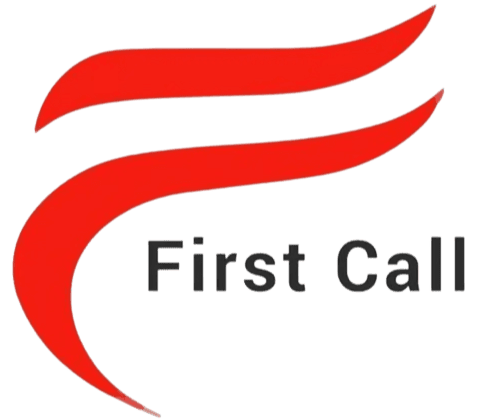
Best Practice Approaches for Managing ADHD: Navigating Effective Strategies

Best Practice Approaches for Managing ADHD: Navigating Effective Strategies
Living with Attention Deficit Hyperactivity Disorder (ADHD) can be challenging, but with the right strategies and support, individuals can lead fulfilling and productive lives. Over the years, best practice guidelines for managing ADHD have evolved, incorporating a range of therapeutic approaches beyond traditional medication. This article explores these effective strategies, including Cognitive Behavioural Therapy (CBT) and emerging third-wave interventions such as mindfulness, yoga, and Acceptance and Commitment Therapy (ACT).
Understanding Best Practices for ADHD
Best practice approaches for ADHD focus on enhancing mental well-being and improving quality of life. These strategies aim to increase self-awareness, foster acceptance, treat co-occurring mental health conditions, and provide necessary support and accommodations. While medication remains a common treatment, non-pharmacological therapies play a crucial role in comprehensive ADHD management.
Cognitive Behavioural Therapy (CBT)
CBT is a widely recognised therapeutic approach that helps individuals with ADHD manage their symptoms by changing negative thought patterns and behaviours. Here’s how CBT can be beneficial:
- Structure and Organisation: CBT provides tools to improve organisational skills, helping individuals create routines and manage their time effectively.
- Emotional Regulation: It aids in recognising and managing emotions, reducing impulsivity and improving decision-making.
- Problem-Solving Skills: CBT enhances problem-solving abilities, enabling individuals to tackle challenges more effectively.
By addressing both the cognitive and behavioural aspects of ADHD, CBT offers a balanced approach to managing symptoms and improving daily functioning.
Third-Wave Interventions: Embracing Mindfulness and Beyond
Third-wave interventions represent the latest advancements in ADHD treatment, integrating mindfulness and acceptance-based techniques to complement traditional therapies. These approaches are gaining traction due to their holistic benefits and emerging evidence supporting their effectiveness.
Mindfulness-Based Interventions
Mindfulness involves staying present and fully engaging with the current moment. For individuals with ADHD, mindfulness can:
- Enhance Focus: Regular mindfulness practice can improve attention span and reduce distractibility.
- Reduce Stress: Mindfulness techniques help manage anxiety and stress, common co-occurring issues in ADHD.
- Promote Self-Awareness: Increased awareness of thoughts and behaviours fosters better self-regulation.
Yoga and Meditation
Incorporating yoga and meditation into daily routines offers both physical and mental benefits:
- Physical Activity: Yoga improves motor skills, coordination, and overall physical health.
- Mental Clarity: Meditation enhances concentration and calmness, aiding in the management of ADHD symptoms.
- Emotional Balance: These practices promote emotional stability and resilience, helping individuals cope with daily challenges.
A notable study by Harrison, Manocha & Rubia (2004) highlighted the effectiveness of meditation for children with ADHD. Their six-week programme, which included individual and group sessions with parental involvement, resulted in a 35% improvement in behaviour. Additionally, over half of the children in the meditation group were able to decrease or cease their medication, demonstrating the potential of these practices in managing ADHD.
Acceptance and Commitment Therapy (ACT)
ACT focuses on accepting thoughts and feelings rather than fighting them, promoting psychological flexibility. For ADHD, ACT can:
- Encourage Acceptance: Helps individuals accept their ADHD-related challenges without self-judgment.
- Promote Commitment: Encourages commitment to personal values and goals, fostering a sense of purpose.
- Enhance Coping Skills: Provides strategies to handle difficult emotions and situations effectively.
Compassion Focused Therapy (CFT)
CFT emphasises developing self-compassion and reducing self-criticism. Benefits for ADHD include:
- Self-Acceptance: Promotes a kinder, more accepting attitude towards oneself.
- Emotional Healing: Helps alleviate feelings of shame and low self-esteem often associated with ADHD.
- Improved Relationships: Enhances empathy and compassion in interactions with others.
Practical Tips for Managing ADHD
Incorporating these therapeutic approaches into daily life can significantly improve ADHD management. Here are some practical tips:
- Establish a Routine: Create a structured daily schedule to enhance organisation and reduce chaos.
- Practice Mindfulness: Dedicate a few minutes each day to mindfulness or meditation to improve focus and reduce stress.
- Engage in Physical Activity: Regular exercise, such as yoga or sports, can help manage hyperactivity and improve mood.
- Set Realistic Goals: Break tasks into manageable steps and celebrate small achievements to stay motivated.
- Seek Support: Connect with therapists, support groups, or mentors who understand ADHD and can provide guidance.
- Use Tools and Resources: Utilise planners, apps, and other organisational tools to keep track of tasks and deadlines.
- Foster Self-Compassion: Be kind to yourself and recognise that managing ADHD is a journey with ups and downs.
Moving Towards Mental Well-Being
While therapy aimed at changing the core features of ADHD has shown limited evidence, the focus is increasingly on enhancing mental well-being and quality of life. By embracing strategies that boost self-awareness, foster acceptance, and provide comprehensive support, individuals with ADHD can navigate their challenges more effectively and lead empowered lives.
Conclusion
Managing ADHD effectively involves a multifaceted approach that goes beyond medication. Cognitive Behavioural Therapy and third-wave interventions like mindfulness, yoga, and ACT offer valuable tools for improving focus, emotional regulation, and overall well-being. By adopting these best practice approaches, individuals with ADHD can connect with their strengths, build resilience, and enhance their quality of life.
Embracing a strengths-based perspective not only empowers those with ADHD but also enriches our communities with their unique talents and perspectives. With the right support and strategies, managing ADHD becomes not just about overcoming challenges, but about thriving and harnessing one’s full potential.
Connect with Us Today To Discuss the Appropriate Therapeutic Approach to Suit You
Thanks for reaching out to us at First Call Therapy! We're here to help you take the first step towards healing and growth. Whether you're struggling with anxiety, depression, addiction, or other mental health concerns, our team of highly qualified and compassionate therapists are here to support you on your journey. Fill out the form below and let's work together towards a better you.
Write to Us
Phone
07563 301785